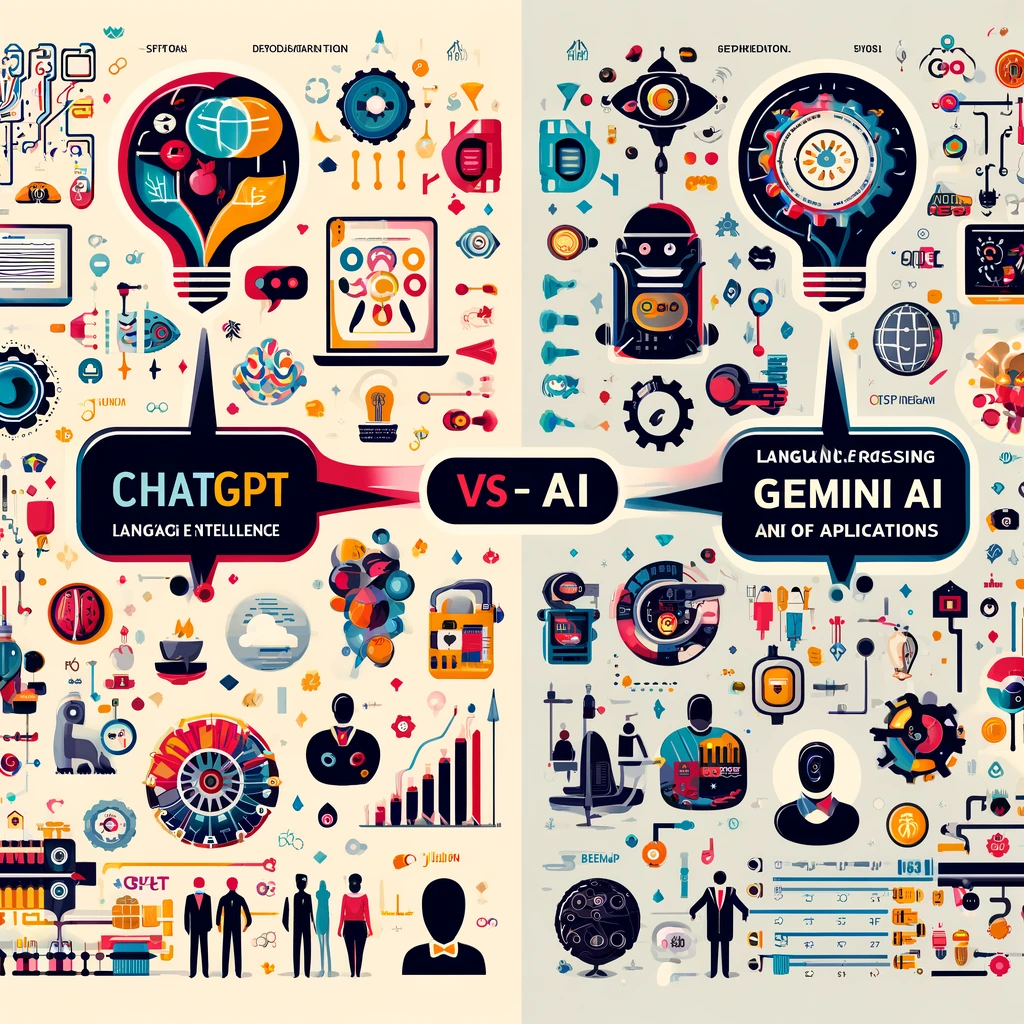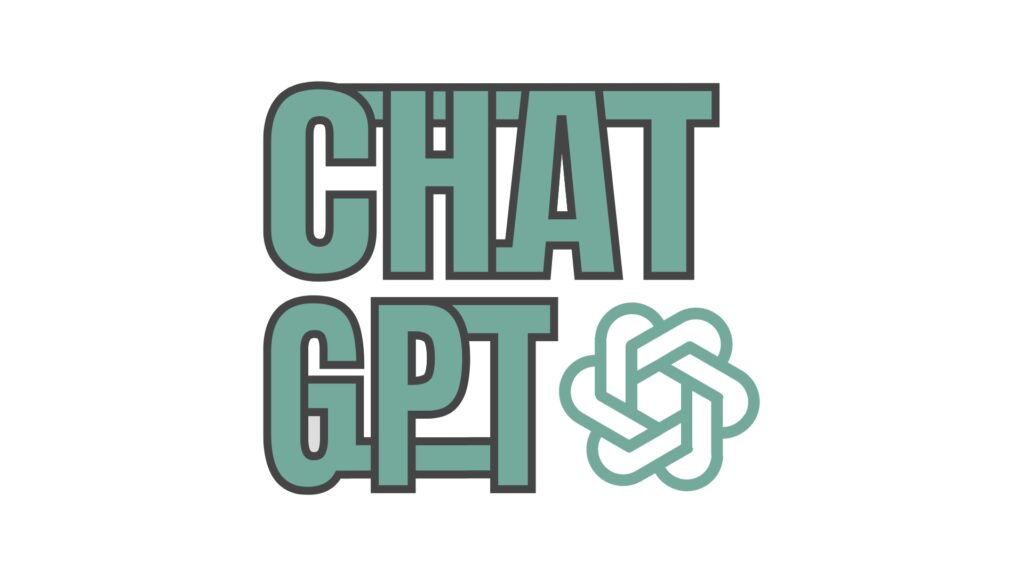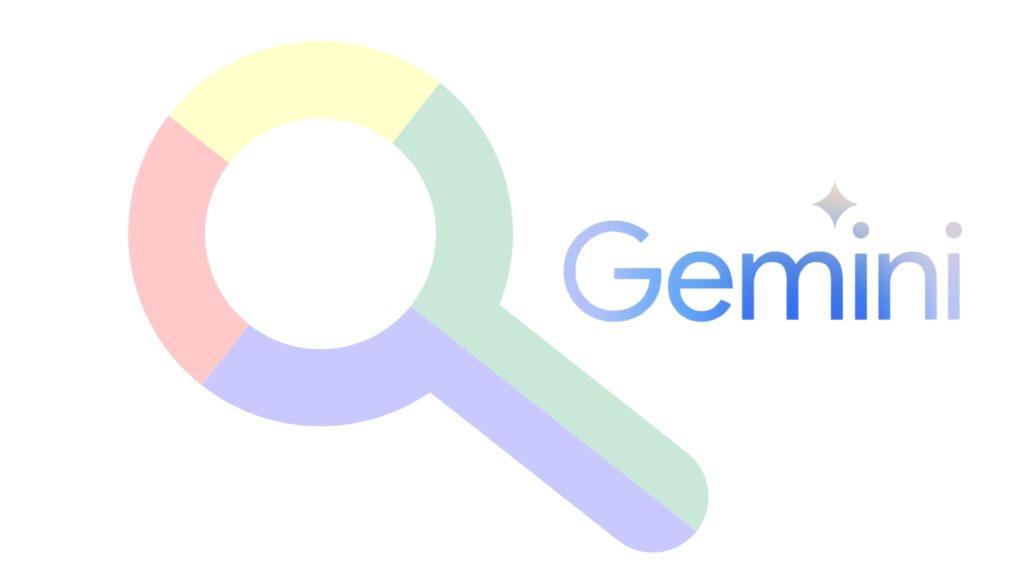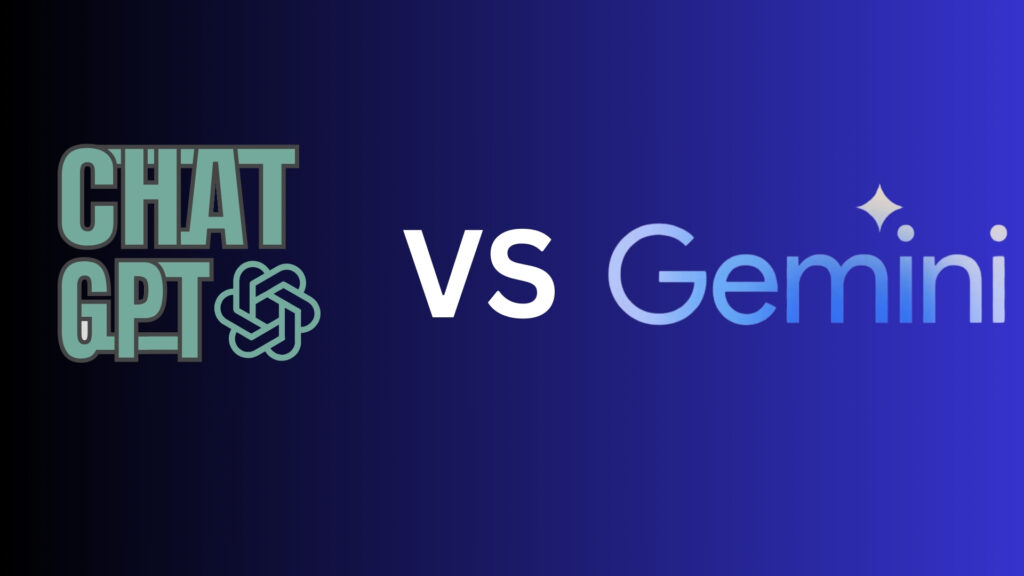Introduction
In the dynamic landscape of artificial intelligence (AI), various models and tools have emerged, each designed to cater to specific needs and functionalities. Among these, OpenAI’s ChatGPT and the lesser-known but equally intriguing Gemini AI offer contrasting approaches to natural language processing and user interaction. This article aims to delve into a detailed comparison of ChatGPT and Gemini AI, highlighting their respective strengths and weaknesses to provide a clearer understanding for potential users and developers.

What is ChatGPT?

ChatGPT is a state-of-the-art language processing AI developed by OpenAI, based on the Generative Pre-trained Transformer (GPT) architecture. This AI model is designed to generate human-like text by predicting subsequent words in a sentence, based on the words that precede them. ChatGPT has undergone several iterations, with each version seeing improvements in language understanding and generation capabilities.
The technology behind ChatGPT involves training the model on a diverse dataset sourced from books, articles, websites, and other forms of text available on the internet. This extensive training allows ChatGPT to develop a broad understanding of human language, including context, nuances, and even humor. The model operates by processing input text through multiple layers of neural networks, each designed to analyze different aspects of language, such as grammar, semantics, and common knowledge.
One of the key features of ChatGPT is its ability to engage in coherent and contextually relevant conversations. Users can ask questions, request explanations, or have a casual chat, and ChatGPT responds in a way that mimics human conversational patterns. This makes it an effective tool for a variety of applications, including customer service, content creation, tutoring, and more.
ChatGPT’s versatility also extends to different languages and domains, demonstrating proficiency across a wide range of subjects. This adaptability is facilitated by its transformer-based design, which excels in tasks that require understanding and generating large amounts of text.
Despite its capabilities, ChatGPT does have limitations, primarily due to its reliance on the data it was trained on. This can lead to biases or inaccuracies in cases where the training data is not comprehensive. Furthermore, while ChatGPT can generate responses based on received information, it does not “understand” content in the human sense but processes it through complex patterns and probabilities.
What is Gemini AI?

Gemini AI, while not as widely recognized as some of the major AI platforms like OpenAI’s ChatGPT, is an intriguing and innovative artificial intelligence technology designed to cater to specific niche markets and specialized applications. The name “Gemini AI” suggests a dual capability, focusing on both data processing efficiency and adaptability to integrate with various technologies, including the Internet of Things (IoT).
The core of Gemini AI revolves around its specialization in processing and analyzing large volumes of data effectively. This focus makes it particularly valuable for industries where real-time data processing and analytics are critical. Industries such as manufacturing, logistics, and smart city management benefit from Gemini AI’s capability to quickly interpret vast datasets to facilitate decision-making and optimize operational efficiencies.
Gemini AI’s technology is often built around the concept of learning and adapting from its operational environment. This adaptive learning allows it to continuously improve its performance and accuracy over time, making it extremely useful for applications where conditions frequently change or where the AI needs to evolve as it gathers more data. For instance, in a manufacturing setting, Gemini AI could predict equipment failures or maintenance needs before they become critical issues, thereby saving costs and preventing downtime.
Additionally, Gemini AI is likely to emphasize integration with IoT devices. This integration enables seamless communication and functionality across various devices and platforms, enhancing automation and monitoring capabilities. For example, in a smart home context, Gemini AI could manage and optimize energy use, security systems, and even personal devices through intelligent algorithms that learn from user behaviors and preferences.
While Gemini AI brings powerful capabilities to specific sectors, its niche focus might limit its applicability in more generalized AI tasks, such as those performed by broader AI models like ChatGPT. However, for businesses and applications that require specialized knowledge and high-efficiency data processing, Gemini AI offers tailored solutions that are both innovative and highly practical.
Features of ChatGPT
ChatGPT, developed by OpenAI, is a sophisticated language model that is part of the broader family of Generative Pre-trained Transformers (GPT). It is designed to generate human-like text based on the input it receives, making it a powerful tool for a variety of applications. Here are some notable features of ChatGPT:
- Natural Language Understanding: At its core, ChatGPT excels in understanding and generating natural language. This capability allows it to engage in conversations, answer questions, provide explanations, and generate coherent long-form content. The model’s design enables it to grasp context and nuances in language, which enhances the relevance and accuracy of its responses.
- Versatility: ChatGPT is highly versatile, able to perform a wide range of tasks that require language processing. This includes translation, summarization, content generation, and even coding assistance. Its ability to adapt to different domains makes it useful in industries ranging from education and customer service to entertainment and software development.
- Fine-Tuning: While ChatGPT is pre-trained on a diverse range of internet text, it can be fine-tuned on specific datasets to cater to particular needs or industries. This customization enhances its effectiveness in specialized tasks, allowing organizations to leverage the model for unique applications.
- Scalability: Thanks to its robust architecture and the backing of OpenAI’s infrastructure, ChatGPT can scale to handle different loads, from individual queries to millions of interactions commonly required by large businesses.
- Interactivity: ChatGPT is designed to handle interactive dialogue. It can manage follow-up questions, admit its mistakes, challenge incorrect premises, and reject inappropriate requests. This interactivity makes it particularly effective as a conversational agent.
- Ethical Considerations: OpenAI has equipped ChatGPT with mechanisms to address ethical concerns, including filters to prevent the generation of harmful or biased content. These safeguards are crucial for responsible AI deployment and use.
Overall, ChatGPT’s combination of deep learning, adaptability, and user-focused design makes it a leading tool in the field of AI-driven communication and content creation, setting a high standard for what modern AI language models can achieve.
Features of Gemini AI
Gemini AI represents a specialized artificial intelligence technology, often associated with applications that require precise and efficient data handling capabilities, particularly in sectors like manufacturing, smart home automation, and predictive analytics. The distinguishing features of Gemini AI underscore its niche focus and advanced technical attributes, making it suitable for industry-specific solutions where high precision and integration with various technologies are essential. Here are some key features that define Gemini AI:
- Specialized Data Analysis: Gemini AI excels in processing large volumes of data quickly and accurately. This capability is essential in industries such as manufacturing, where real-time data analysis can predict equipment failures before they occur, minimizing downtime and maintenance costs.
- Integration with IoT Devices: A standout feature of Gemini AI is its ability to integrate seamlessly with Internet of Things (IoT) devices. This integration facilitates smarter automation and data collection processes, enabling more efficient operations across different environments, from industrial settings to personal living spaces.
- Adaptive Learning: Gemini AI is designed to learn from its environment continuously. This adaptive learning technology allows it to improve its algorithms based on real-time data inputs, enhancing its predictive accuracy and operational efficiency over time.
- Energy Efficiency Management: In applications such as smart homes or smart grids, Gemini AI can optimize energy usage by analyzing usage patterns and adjusting controls automatically. This not only conserves energy but also reduces costs for users.
- Customizable Solutions: Although Gemini AI focuses on specific industries, it offers customization options that allow it to tailor its algorithms and functionalities to meet unique customer needs. This flexibility is particularly valuable in fields that require bespoke solutions.
- Scalability: Gemini AI is built to scale with the needs of the business it serves. Whether it’s expanding its capacity to handle more data or extending its reach to additional systems or devices, Gemini AI can adapt to larger operational demands without losing performance quality.
By focusing on these advanced features, Gemini AI provides robust support for sectors that benefit from precise data analysis and device integration, making it a pivotal technology in the context of Industry 4.0 and beyond.

Pros of ChatGPT
ChatGPT, developed by OpenAI, is a powerful language processing tool known for its versatility and effectiveness in generating human-like text. This AI has gained significant attention across various sectors for its impressive capabilities. Here are some of the key advantages of using ChatGPT:
- High Versatility: One of the most striking features of ChatGPT is its ability to adapt to a wide array of tasks that involve language processing. It can be utilized for composing emails, generating articles, creating poetry, providing tutoring, coding assistance, and much more. This adaptability makes it invaluable across different industries including education, customer service, entertainment, and technology.
- Advanced Language Understanding: ChatGPT is designed to understand context and nuance in human language, allowing it to engage in conversations that are coherent and contextually relevant. Its responses are not only accurate but also appropriately tailored to the nuances of tone and style required by different interactions. This deep understanding of language nuances enhances user experience significantly.
- Scalability: OpenAI has designed ChatGPT to handle varying levels of demand, from single-user applications to enterprise-scale solutions. This scalability ensures that organizations of all sizes can rely on it for consistent performance, regardless of the volume of queries or the complexity of the tasks.
- Customization and Integration: ChatGPT can be customized and integrated into existing systems and applications. This flexibility allows businesses to implement AI-driven interactions in their services without needing to overhaul their existing infrastructure. Whether integrated into customer service chatbots, virtual assistants, or creative writing tools, ChatGPT can significantly enhance the functionality of these applications.
- Continuous Improvement: OpenAI continuously updates ChatGPT, improving its accuracy, reducing biases, and expanding its data set to keep the responses relevant and up-to-date. This commitment to ongoing development helps maintain its effectiveness as a cutting-edge tool.
- Ethical Considerations: OpenAI has implemented measures to make ChatGPT ethically aware, attempting to mitigate issues such as generating discriminatory or harmful content. These ethical guidelines help ensure safer interactions and outputs from the AI.
Pros of Gemini AI
Gemini AI, although less renowned than mainstream AI models like ChatGPT, brings a suite of specialized capabilities to the table, particularly valuable for niche applications that require precise data analysis and integration with advanced technological infrastructures. Here are some key advantages of using Gemini AI:
- Specialized Expertise: Gemini AI is tailored for specific industries and applications, providing targeted solutions rather than a one-size-fits-all approach. This specialization is especially beneficial in fields like manufacturing, energy management, and smart technology, where detailed and industry-specific analytics are crucial for operational efficiency.
- Efficient Data Processing: At the core of Gemini AI’s strengths is its ability to process and analyze large volumes of data rapidly. This is critical for applications that depend on real-time data analysis to make quick decisions, such as predictive maintenance in manufacturing facilities or real-time adjustments in smart grids.
- IoT Integration: Gemini AI excels in seamlessly integrating with Internet of Things (IoT) devices. This capability allows it to function as the brain behind smart systems, optimizing everything from industrial machinery to home automation systems by analyzing data from connected devices and making intelligent decisions.
- Adaptive Learning: Unlike more static AI models, Gemini AI is designed to learn and adapt from ongoing data. This means that it continuously refines its algorithms based on new information, improving its accuracy and effectiveness over time—a significant advantage in rapidly changing environments.
- Energy Efficiency: In settings like smart homes and smart cities, Gemini AI can significantly enhance energy efficiency. By analyzing usage patterns and environmental data, it can optimize energy consumption, leading to cost savings and reduced environmental impact.
- Scalability: Despite its niche focus, Gemini AI is scalable, capable of expanding its capabilities and applications as required by the user. This scalability makes it a versatile tool for growing companies or evolving industries looking to scale up their AI implementations without switching systems.
These advantages make Gemini AI a compelling choice for businesses and industries looking for AI solutions that offer deep integration with technological infrastructures and tailored, efficient handling of specific tasks.
Cons of ChatGPT
While ChatGPT offers a range of impressive capabilities in natural language processing, like any technology, it has its limitations and drawbacks. Understanding these cons is crucial for users who may consider deploying this AI in various applications. Here are some of the notable cons associated with ChatGPT:
- Dependence on Training Data: ChatGPT’s responses are generated based on patterns it has learned from its training data. This means its output is limited to the information it was trained on, and it may not handle topics well that it has not been exposed to extensively. This can result in inaccuracies or outdated information in certain responses.
- Data Privacy Concerns: Given its extensive training on diverse datasets, there is a concern about how data is handled and the potential for misuse of personal information. Users providing sensitive or personal data during interactions might risk their information being used in ways they do not anticipate.
- Lack of Contextual Understanding: Despite its advanced algorithms, ChatGPT sometimes struggles with deep contextual understanding and long-term memory in conversations. It can lose track of the conversation thread, leading to responses that might not fully acknowledge previous interactions within the same session.
- Bias in AI Responses: ChatGPT can inadvertently generate biased or discriminatory responses because it learns from a vast range of internet sources, including those with inherent biases. OpenAI continuously works to mitigate these issues, but it remains a challenge inherent to training AI on human-generated data.
- Resource Intensity: Running sophisticated AI models like ChatGPT requires substantial computational power, which can be a barrier for deployment in environments with limited hardware capabilities. This can also lead to significant energy consumption, raising environmental concerns.
- Potential for Misuse: The ability of ChatGPT to generate realistic and coherent text makes it susceptible to misuse, such as creating misleading information, impersonating individuals, or generating harmful content.
Addressing these challenges is part of the ongoing development and ethical considerations in deploying AI technologies like ChatGPT. Users and developers must be aware of these limitations to effectively integrate ChatGPT into their solutions responsibly.
Cons of Gemini AI
While Gemini AI offers specialized solutions in data analysis and IoT integration, it also has limitations and challenges that potential users need to consider. Understanding these drawbacks is essential for effectively leveraging its capabilities and mitigating any adverse effects. Here are some notable cons associated with Gemini AI:
- Niche Specialization: Gemini AI’s focus on specific industries and tasks can be a double-edged sword. While it excels in environments where specialized knowledge and data processing are required, its utility may be limited outside these contexts. This makes it less versatile compared to more generalist AI systems like ChatGPT, which can adapt across a broader range of scenarios and industries.
- Implementation Complexity: Deploying Gemini AI often involves a steep learning curve due to its specialized nature. Organizations may need to invest significantly in training and development to fully harness its capabilities. Additionally, integrating Gemini AI with existing systems, especially in complex industrial settings or with IoT infrastructures, can be technically challenging and resource-intensive.
- Smaller User Community: Being a more niche tool, Gemini AI might not have as extensive a user community as more popular AI platforms. This can limit the availability of ready-made solutions, shared expertise, and troubleshooting support, potentially slowing down problem resolution and innovation.
- High Costs: The specialized functions and capabilities of Gemini AI might come with higher costs related to development, deployment, and maintenance. These costs could be a barrier for small to medium enterprises or startups that might not have the necessary financial resources.
- Limited General Knowledge: Unlike AI models trained on diverse datasets encompassing general knowledge, Gemini AI’s training might be focused on specific data relevant to its target applications. This focus can restrict its ability to handle queries or tasks that fall outside its primary knowledge base.
- Potential for Over-reliance: Relying heavily on an AI system for critical decisions in specialized fields can be risky if the system experiences downtime or errors. This over-reliance can pose operational risks, especially if fallback or manual systems are not robust.
By carefully considering these drawbacks, organizations can better plan for the integration of Gemini AI into their operations, ensuring they are prepared to address any challenges that may arise.
Comparative Analysis
- Adaptability and Versatility: ChatGPT clearly leads when it comes to versatility and adaptability. It can handle a wide variety of tasks that require general knowledge and linguistic abilities. In contrast, Gemini AI is better suited for specific tasks that benefit from its niche focus and efficient data processing capabilities.
- Ease of Use and Support: ChatGPT benefits from OpenAI’s robust support and large user community that contributes to an extensive knowledge base, making it easier to implement and troubleshoot. Gemini AI, being more specialized and possibly newer, may lack extensive documentation and a large user community, which could pose challenges for new users.
- Integration Capabilities: Both AI tools offer significant integration capabilities, but their approaches differ. ChatGPT’s flexibility makes it ideal for integrating into a wide range of applications, from simple chatbots to complex business systems. Gemini AI, on the other hand, may offer deeper integration with IoT devices and industry-specific platforms, which could be more valuable for certain sectors.
- Data Handling and Privacy: Both platforms must address the critical issue of data privacy. ChatGPT, processing vast amounts of general data, might raise more significant concerns about privacy and data handling. Gemini AI, while also needing to ensure data privacy, handles more specialized data, which might involve additional layers of security pertaining to industry-specific regulations.
Conclusion
In concluding the comparison between ChatGPT and Gemini AI, it is evident that each AI system has been designed with distinct goals and target audiences in mind, reflecting different strengths and limitations. ChatGPT, developed by OpenAI, is celebrated for its versatile linguistic capabilities and generalist approach, making it suitable for a broad range of applications from customer service to creative content generation. Its ability to understand and generate human-like text across diverse topics makes it a valuable tool for industries seeking an AI that can engage with end-users effectively and handle various linguistic tasks.
On the other hand, Gemini AI, with its niche focus, excels in specialized applications, particularly where efficient data processing and integration with IoT devices are paramount. Its strengths lie in its ability to provide tailored solutions in sectors such as manufacturing, smart technology, and real-time analytics, where precision and industry-specific functionality are critical. This makes Gemini AI ideal for organizations looking to leverage AI for specific operational improvements and data-driven decision-making.
The choice between ChatGPT and Gemini AI should therefore be guided by the specific needs and objectives of the user or organization. For those requiring a general-purpose AI capable of wide-ranging conversational abilities and text generation, ChatGPT is the preferable option. Conversely, for enterprises needing an AI that can integrate deeply with technical infrastructures and perform precise analytical tasks, Gemini AI is more appropriate.
Both AIs demonstrate the diverse potential of artificial intelligence technologies, highlighting the importance of aligning AI capabilities with user requirements to maximize effectiveness. As the AI field continues to evolve, both ChatGPT and Gemini AI are likely to expand their capabilities, further enhancing their applicability and performance across various domains, driving continued innovation and adaptation in this dynamic technological landscape.

